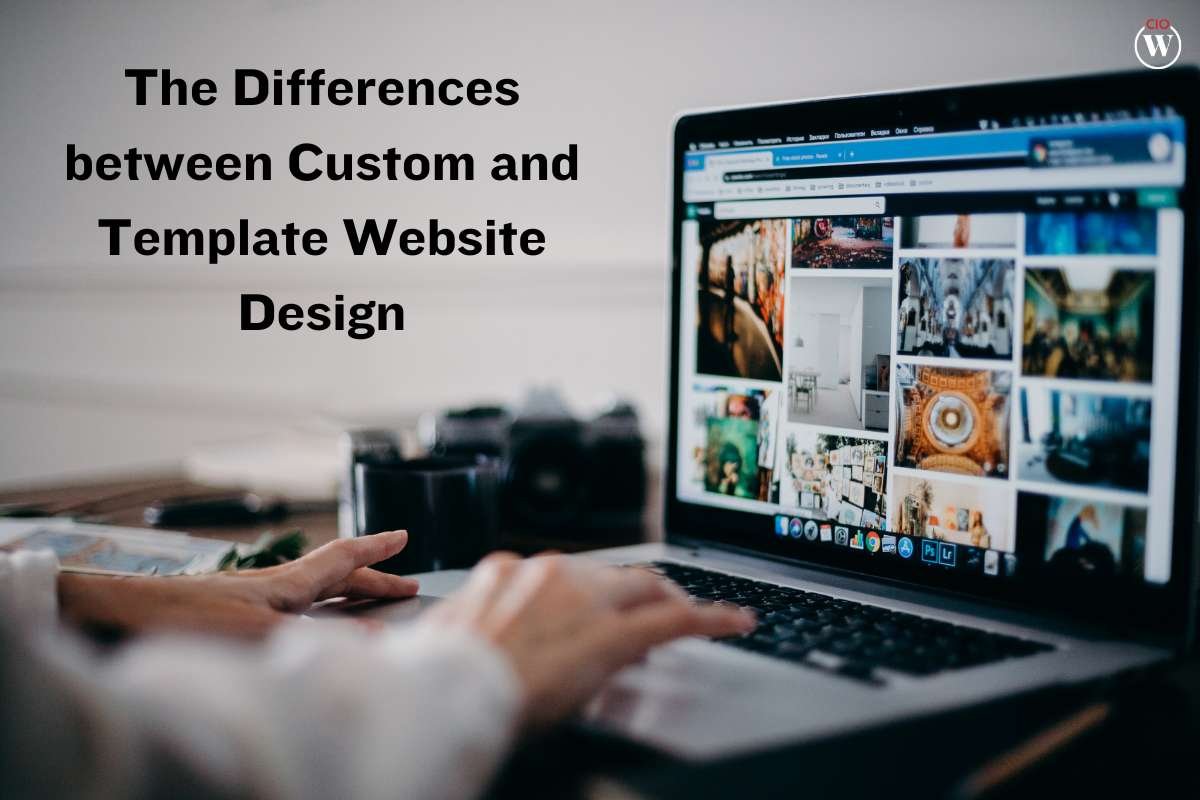A new website or a need to update the existing one is the hairpuller for many marketing professionals. There are a number of factors to be considered when determining a website. Thanks to the Content Management Systems (CMS) that allow organizations to easily upgrade their websites with technical support. Website design can be customized according to your needs and requirements. A custom website is one which is created from scratch, whereas, a template can be customized in terms of content and graphics. Website design is a critical element in establishing an online presence for your business.
When it comes to creating a website, you have two primary options: Custom and template website design. Each approach offers its own set of advantages and disadvantages.
Here we are to mention The Differences between Custom and Template Website Design:
Custom Website Design: Tailored to Perfection
A custom website involves creating a website from scratch, tailoring every aspect to meet the specific needs and objectives of a business. Here’s a closer look at the features and advantages of custom website design:
1. Unique and Brand-Centric

One of the most significant advantages of custom website design is the uniqueness it offers. Your website is crafted to reflect your brand identity perfectly. Every element, from the layout to the color scheme, is designed to match your brand’s personality.
2. Tailored Functionality
Custom websites can be developed to accommodate any functionality you desire. Whether it’s an intricate e-commerce platform, a customer portal, or a booking system, custom website design allows for flexibility in functionality, catering to your business’s specific needs.
3. Superior User Experience
With custom website design, user experience takes center stage. You can create a user-friendly interface that aligns with your audience’s preferences, ensuring that visitors have a seamless and engaging experience.
4. SEO Optimization
Custom websites offer more control over SEO (Search Engine Optimization). You can optimize each page, image, and piece of content to improve search engine rankings, increasing your website’s visibility to potential customers.
5. Scalability
As your business grows, your website can grow with it. Custom websites are scalable, allowing you to add new features and functionalities as needed without major overhauls.
6. Long-Term Investment
While a custom website may require a higher upfront investment, it is often considered a long-term investment. Your website can evolve and adapt to your business’s changing needs, providing value for years to come.
Template Website Design: Quick and Convenient
Template website, on the other hand, involves using pre-designed website templates that you can customize to some extent. Let’s explore the features and advantages of template website design:
1. Cost-Effective

A template website is typically more budget-friendly than a custom design. It’s a cost-effective option for businesses with limited resources.
2. Faster Deployment
Templates are readily available and can be deployed quickly, making them ideal for businesses that need a web presence in a short time frame.
3. Easy Customization
While templates offer a degree of customization, they are not as flexible as custom designs. However, they allow you to personalize the layout, colors, and content to some extent.
4. Support and Updates
Many template providers offer ongoing support and updates, ensuring that your website remains functional and secure.
5. Suitable for Small Businesses
Small businesses and startups often find template designs suitable for their initial online presence. They can upgrade to custom designs as they grow.
Which Type of Website Design is Preferred by Business Owners and Why?
The preference for Custom and template website design largely depends on a business’s specific needs, budget, and long-term goals. Let’s examine why business owners might choose one over the other:
Custom Website Design: Business owners prefer custom website design when they:
- Seek Uniqueness and Branding:
Companies that aim to establish a strong brand identity often opt for custom designs. These businesses want a website that reflects their values, mission, and personality accurately.
- Have Unique Functionality Requirements:
If your business requires specialized functionality or integration with third-party systems, a custom design is the way to go. It allows for tailored solutions that meet specific requirements.
- Value SEO and Long-Term Growth:
Businesses that prioritize SEO and long-term growth tend to choose custom designs. SEO optimization is more efficient when every element of the website is customized to align with the business’s goals.
- Anticipate Scalability:

If you foresee your business expanding and needing additional features in the future, custom website design is a wise choice. It provides the flexibility to scale your online presence as your company grows.
- Have a Generous Budget:
Custom website design comes with a higher upfront cost. Businesses with a more substantial budget and a commitment to quality often opt for this option.
Template Website Design: Business owners prefer template website design when they:
- Have Limited Budget and Time Constraints:
Small businesses and startups with limited budgets often choose template designs for their affordability and quick deployment.
- Seek a Simple Online Presence:
If your business primarily needs an informational website with basic functionalities, a template design can meet those requirements without the complexity of a custom build.
- Prefer User-Friendly DIY Solutions:
Some entrepreneurs and small business owners are comfortable with do-it-yourself (DIY) website builders that use templates. These platforms offer user-friendly tools for customization.
- Don’t Require Highly Unique Branding:
Businesses that prioritize speed and cost over unique branding might find template designs sufficient for their needs.
Advantages and Features of a Website for a Business
Regardless of whether you choose from Custom and template website design, having a website for your business offers numerous advantages and features that contribute to its success:
- Online Visibility:
A website provides online visibility, making it easier for potential customers to find your business and learn about your products or services.
- Credibility:
A professionally designed website adds credibility to your business. It establishes trust and reassures customers that you are a legitimate and reliable entity.
- 24/7 Availability:
Your website is accessible 24/7, allowing customers to browse and make inquiries at any time, even outside of business hours.
- Global Reach:
With an online presence, your business can reach a global audience, expanding your customer base beyond geographical boundaries.
- Marketing Hub:
Your website serves as a central hub for your online marketing efforts. You can integrate email marketing, social media, and other digital marketing strategies to drive traffic and conversions.
- Customer Engagement:
Websites enable direct interaction with customers through contact forms, live chat, and comment sections, fostering engagement and building relationships.
- Analytics and Insights:
Most website platforms offer analytics tools that provide valuable data on visitor behavior, helping you make informed decisions and refine your marketing strategies.
- E-commerce Capabilities:
For businesses selling products, an e-commerce website allows for online sales, expanding revenue streams and customer reach.
- Content Publishing:
You can regularly update your website with blog posts, articles, and other content to establish authority in your industry and improve search engine rankings.
- Mobile Optimization:
Websites can be optimized for mobile devices, ensuring a seamless experience for users on smartphones and tablets.
Conclusion
In the world of Website Design, the choice between Custom and template website designs ultimately boils down to your business’s unique needs, budget, and goals. Custom website offers unparalleled flexibility, branding opportunities, and scalability, making it a top choice for businesses that prioritize these aspects. Template website design, on the other hand, is a cost-effective and convenient solution for those with limited resources or time constraints. Regardless of your choice, having a website is crucial for any business. A well-designed website enhances your online presence, builds credibility, and serves as a powerful marketing tool.
Also read: 10 Tips for a Good Website Design









